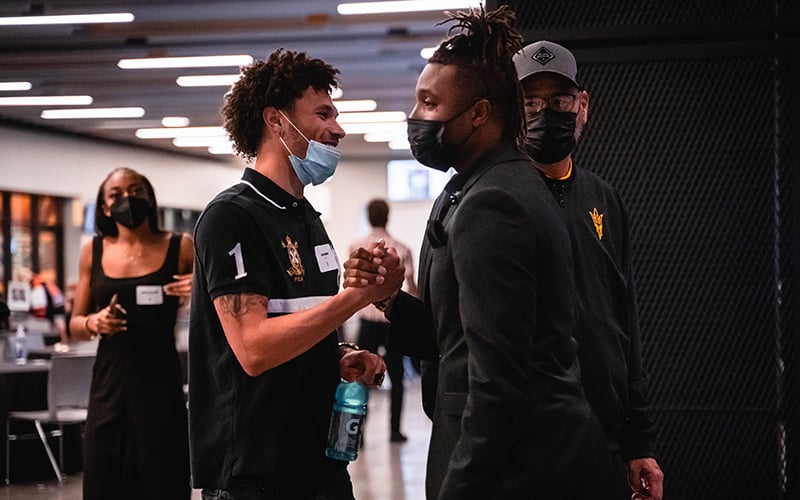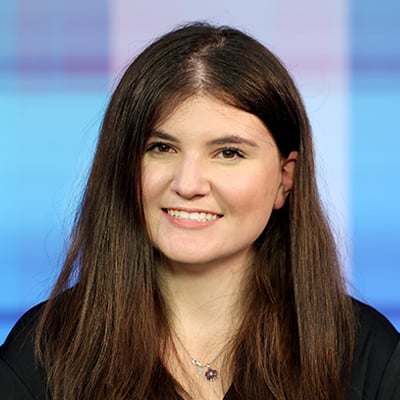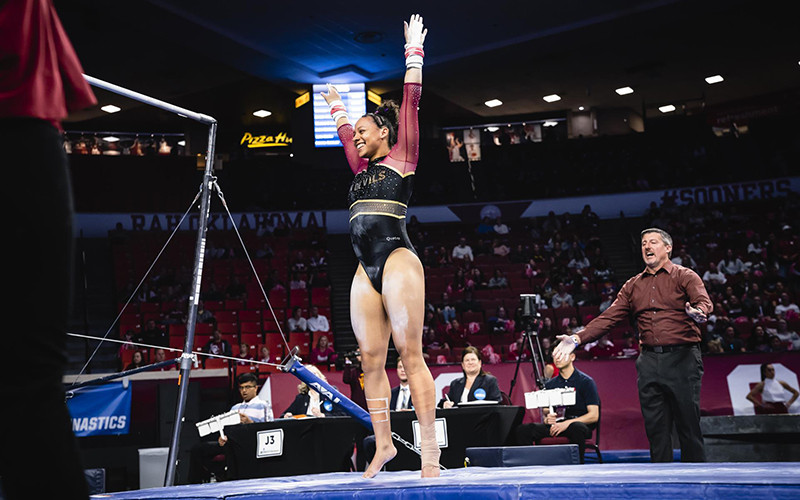PHOENIX – When former Arizona State sprinter Cortney Jones created the Black Student Athlete Association, her goal was simple: create social justice change and give Black athletes a voice on campus.
Before transferring to Arizona State, Jones was unsuccessful in establishing a similar organization at Florida State University. However she remained undeterred and in January of 2021 she successfully launched the organization on the ASU campus.
Since then, the Black Student Athlete Association, or BSAA, has evolved and expanded to provide a voice for all minority athletes at ASU.
Senior ASU gymnasts Izzy Redmond and Juliette Boyer are now president and vice president of the organization, respectively, and hope to continue to bring social change to the university. The pair recently traveled to Alabama to further educate themselves about the civil rights movement and returned with resources to share with fellow student athletes.
Redmond and Boyer joined Markisha Farrier, ASU’s Office of Student-Development coach, along with athletes and employees from the Pac-12, Big Ten and the ACC in Montgomery and Selma. They spent the week speaking to social justice advocates who lived through segregation in the south and hearing from multiple keynote speakers.
“For me it was something that was honestly life changing,” Redmond said. “It kind of sounds cliché, but it was just kind of being in those spaces where Black history was made, where people were fighting for some of the causes that we’re still fighting for today and really set that groundwork … (it) was incredible to stand in the place where Martin Luther King gave his speeches. It was just really impactful for me.
“We actually have a small presentation coming up that we’re going to be recapping our trip – kind of just bringing back the resources, bringing back that experience to our ASU community.”
After learning how many students were involved in the protests during the movement, Boyer and Redmond both felt the need to help make an impact beyond only athletes.
“What we wanted to do was create this safe space for Black athletes to come together, have experiences, connect with the community and kind of just build that,” Redmond said. “And while we’re doing that, give them a platform to make change and kind of uplift them to use their voice and help support the ASU community.”
Redmond’s role as president of the organization is to educate fellow athletes, coaches, students and staff on social justice issues. Boyer joined the BSAA after seeing Redmond’s drive to create change and make an impact on her ASU community.
“I’ve always been passionate about helping others and creating that positive change anywhere I go,” Boyer said.
In February of 2022, Redmond organized the BSAA’s first Soul Devils event during Black History Month to teach athletes across ASU sports about soul food’s essential role in Black culture and to introduce them to the BSAA. Another Soul Devils event is in the works for February 2023.

Earlier this year, the Black Student-Athlete Association hosted a Soul Devils event, where athletes joined with other groups to learn about the historical importance of soul food and other key cultural moments (Photo courtesy of Sun Devil Athletics)
After many of the BSAA’s earlier efforts were thwarted by the COVID-19 pandemic, the Soul Devils event was deemed a success.
“I think, for us, that was something that was so incredible because that really was our first year of being a true organization where people could come out and be part of these events,” Redmond said, adding that the organization felt the support of ASU administrators who showed interest in the group and spoke to the athletes in attendance.
“And again, it was something where we could really mix the community side of it and build a space for athletes to come together and educate them at the same time,” Redmond said.
Boyer believes that the BSAA should be expanded to all athletes and create a space that would get everyone involved, not just athletes from minority communities.
“It’s really just a place to advocate for not only Black athletes, but their allies as well and just educate people on different experiences, different perspectives, and really interact with our community and engage them in something that’s really important and can hopefully make some positive change in and maybe outside of our community as well,” Boyer said.
The BSAA hopes that in the future, they will be able to promote and provide outreach while bringing athletes together to create a safe space where athletes of color and (their) allies can share personal experiences and further educate themselves on Black history.”
Redmond said the BSAA wants to make “a bigger impact” by expanding its reach within the greater ASU community.
“We want to have this organization grow and reach every sport, every student athlete,” Redmond said. “And then also to start getting athletes involved in the actual process of getting them into the rooms where (diversity, equity and inclusion) decisions are being made and giving them that voice, that platform to actually make change – as well as those smaller things of building community and having fun while we’re doing it.”

